A tribute to an American hero and an endearing friendship.
In 1974, two British guys wrote a patriotic song about Philadelphia and an American hero.
Was it an ode to William Penn, the first colonizer of Pennsylvania, or William Lloyd Garrison, the abolitionist?
Nope.
How about Susan B. Anthony, the suffragette who read the Declaration of the Rights of Women outside of Independence Hall in 1876.
Still no.
Wilt Chamberlain or Julius Irving of the 76ers?
We’re getting closer.
Elton John is a huge sports fan but his loving tribute wasn’t to Philadelphia’s most famous athletes. Instead, it was an ode to activist, California girl, and world No. 1 tennis player, Billie Jean King, and her team at the time — the Philadelphia Freedoms.
King had already won 10 Grand Slam titles by 1973 when she became fast friends with John. The pair met at a party to promote her infamous “Battle of the Sexes” exhibition match against Bobby Riggs. Aside from the fact that they were both gay celebrities navigating fame from within the closet, they had a mutual respect for each other’s talent. King told US magazine, “I wanted to play the piano as a kid and he wanted to be an athlete. Besides, we were both chubby and couldn’t see well.”
King and John were at the top of their respective fields when they met. King was a staunch advocate for women’s equality in sports and had founded the Women’s Tennis Association, which united all professional women players into one tour, legitimizing it with sponsors and television coverage. In the early ‘70s, the pay differential between men and women players was 12:1. "Promoters were making more money than women. Everybody was making more money except the women,” King told ESPN. She had won the US Open in 1972 but earned $15,000 less than the men’s champion. Her refusal to play the tournament until changes were made led to the US Open becoming the first major tournament to offer equal prize money for men and women.
In 1973, just two weeks after meeting John, King would defeat self–described “male chauvinist” Bobby Riggs in the “Battle of the Sexes” exhibition match, winning $100,000, which equates to about $700,000 in 2023. Riggs, a former world No. 1 in the 1940s, claimed that women’s tennis was so inferior to the men’s sport that even a retired 55-year-old like him could beat the current world’s best woman. In front of a televised audience of 50 million people, King smoked Riggs in straight sets.
King said of the pivotal moment, "I thought it would set us back 50 years if I didn't win that match. It would ruin the women's tour and affect all women's self-esteem.”
Meanwhile, Elton John was also a champion at his own game. With eight studio albums under his sparkly belt, John had charted seven singles in the top 20 of the Billboard charts by the time he met King. After cheering on King’s win at Wimbledon in 1973, John also became an avid fan of the newly formed mixed-gender pro tennis league, World Team Tennis. King had just been drafted by the WTT as player and coach of the Philadelphia Freedoms, making her the first woman to coach men in the sport. John was so inspired by King’s achievements, he offered to write a song for her and the new team.
John built the musical arrangement of “Philadelphia Freedom” around the “Philly Soul” sound created by producers Gamble and Huff for acts like the O’Jays and the Delfonics. For the lyrics, John left the task, as he often did, to songwriting partner Bernie Taupin.
The problem was, Taupin didn’t know a damn thing about tennis.
"I said, 'I shall write a song for you. Here Bernie, good luck,'" John quipped in the liner notes for his To Be Continued box set. Knowing his limits, Taupin made no attempts to make the song about tennis. Instead, he wrote nonsensical lyrics that had an anthemic spirit. Because the U.S. bicentennial would be happening around the time of the single’s release, Taupin thought audiences would connect with a song named after the place where the Declaration of Independence was signed. Too bad the lyrics literally have nothing to do with any of it. It turns out, though, that Taupin was right. “Philadelphia Freedom” became an instant hit and reached No.1 on the charts. For John, the ode to his new bestie proved to be a championship point. The inner sleeve of the record reads "with Love to B.J.K. and the sound of Philadelphia.”
So what did B.J.K think of the song she inspired that had nothing to do with her or the sport she played? John played "Philadelphia Freedom" for her in the locker room before a playoff game in Colorado where the Freedoms were set to face the Denver Racquets. "I said, 'I don't like it, Elton – I love it, love it, love it,'" King told John's website. "He said, 'We don't have to understand what the words mean... ,' and I said, 'It doesn't matter. It's the emotion of it."
John and King would become lifelong friends and a support system as they each navigated the complicated process of coming out in a homophobic society. John would come out as bisexual in a 1976 interview with Rolling Stone:
"There’s nothing wrong with going to bed with somebody of your own sex. I think everybody’s bisexual to a certain degree. I don’t think it’s just me. It’s not a bad thing to be. I think you’re bisexual. I think everybody is."
After marrying a woman in 1984 and divorcing four years later, John would come out again in 1992 as gay.
King, on the other hand, was outed by an angry ex-lover in 1981. Marilyn Barnett, King’s former assistant and girlfriend, tried to extort her for money after their breakup. Barnett had lived in King’s Malibu home and, after being asked to leave, attempted suicide by jumping off the balcony. Barnett would lose a heated court battle after an attempt to sue King for half her earnings. Against her lawyer’s advice, King called a press conference where in May 1981 she would become the first professional tennis player to publicly come out.
More than lifelong friends, the pair also teamed up as LGBT+ activists, hosting several events including the World Team Tennis Smash Hits, a charity event they co-chaired to support AIDS charities. And King later served on the board of John’s AIDS Foundation.
“We're out there every single day with our energy, and we're going to make this world a better place – no matter if it's through tennis, through music, whatever, to try to help the LGBT community, just help humanity," King told CNN.
Game. Set. Match besties.
Like this post? If you felt inspired or learned something, consider supporting my work by upgrading to a paid subscription.
Or, if you’d prefer a smaller donation (even just $1) you can do so below:
It’s so easy when know the rules. It’s so easy, all you have to do is…
Name the middle name that Reginald Kenneth Dwight (aka: Elton John) chose when he legally changed his name in 1972.
A. James
B. Knight
C. Zeus
D. Hercules
(Scroll for the answer.)
And you’re a material girl.
Welcome to our merch store! Every week, we’ll offer some cool swag based on the artist from each issue.
Quiz answer: It’s D - Hercules! Sir Elton Hercules John
Did you catch last week’s issue?

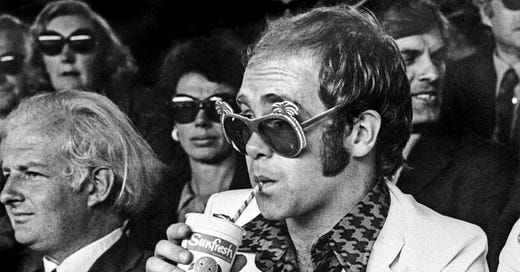





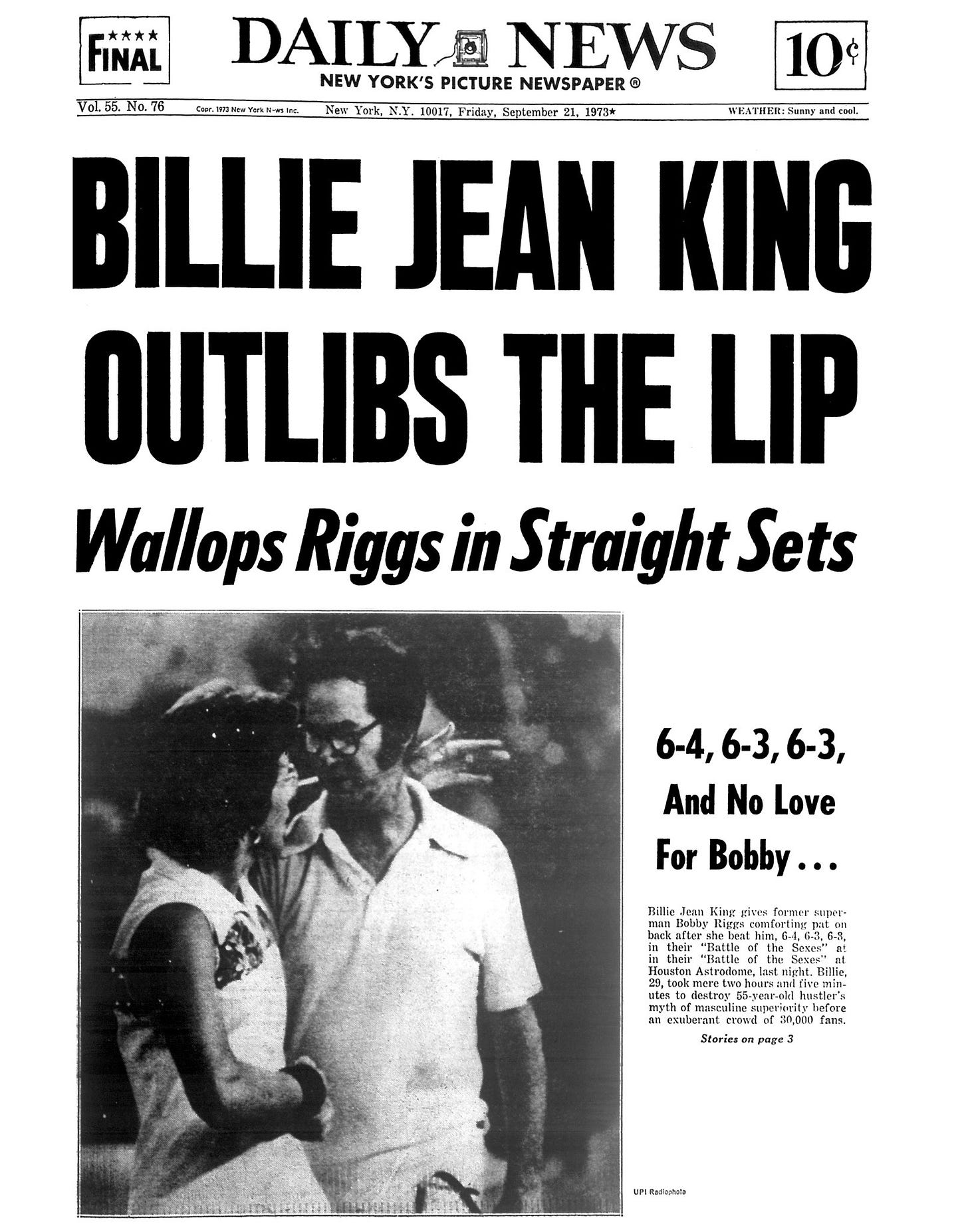
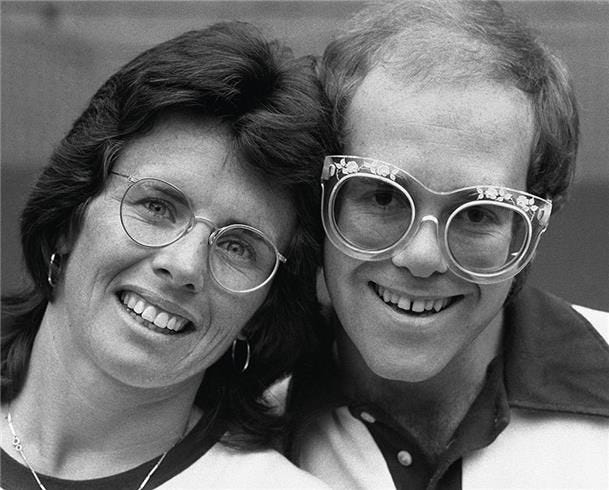

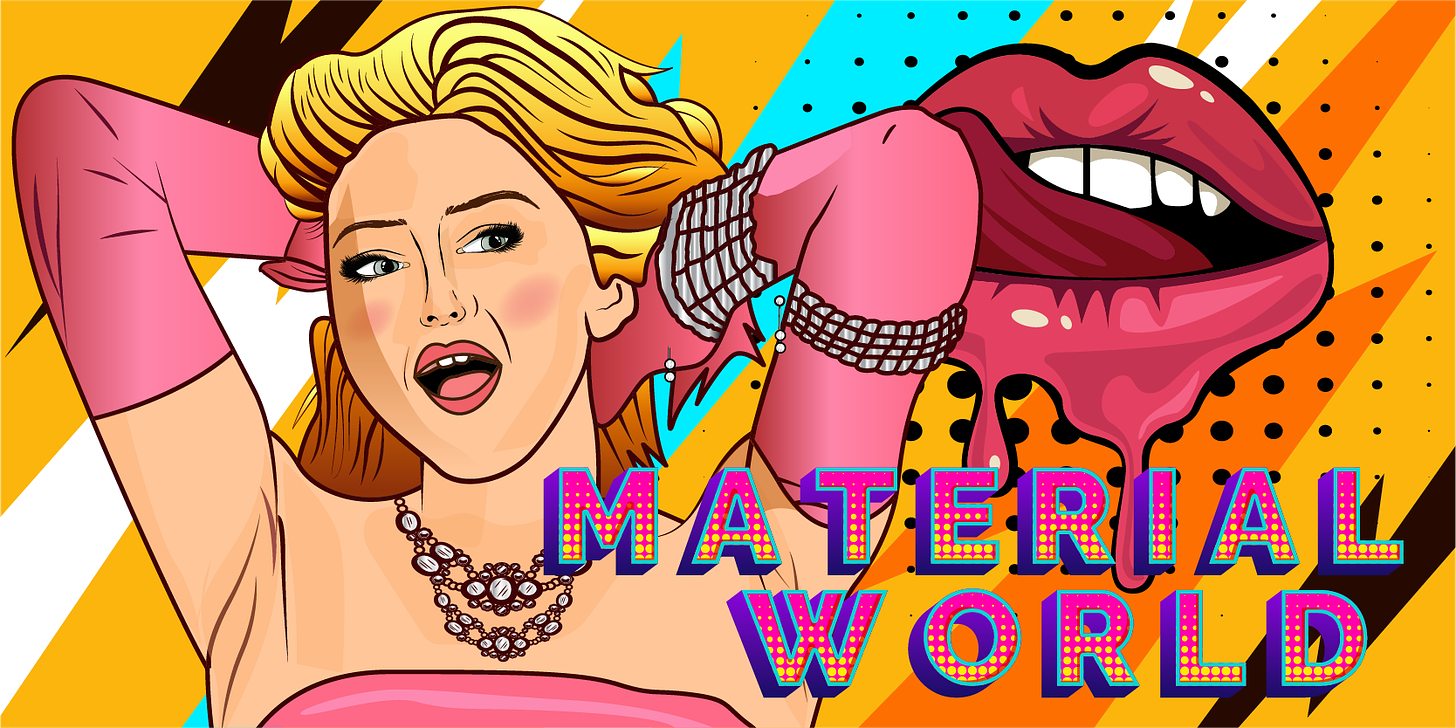


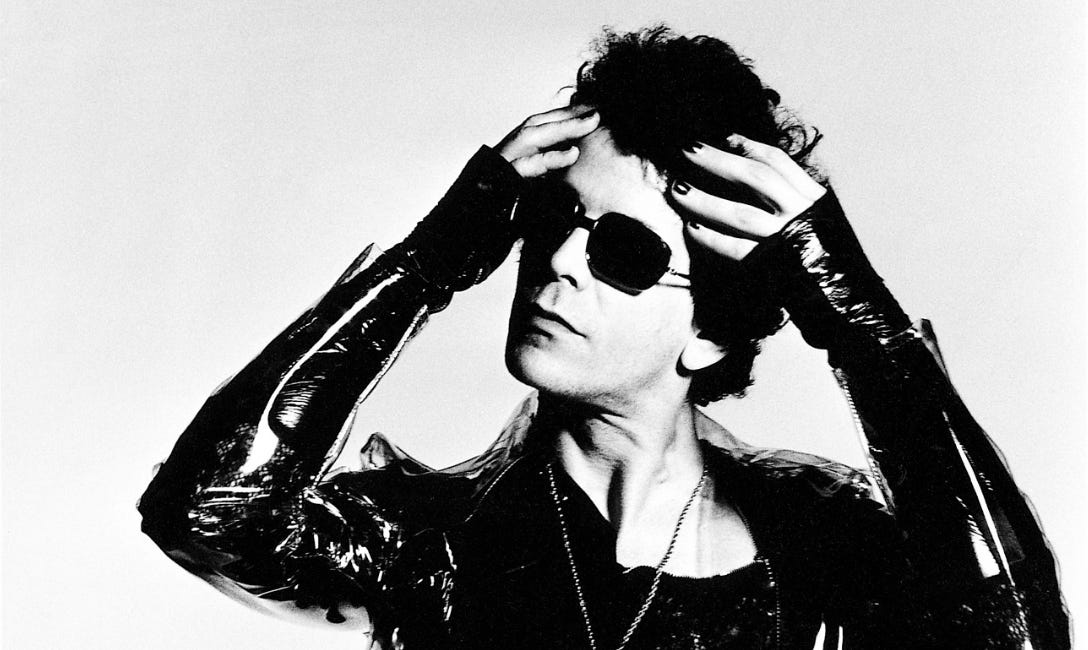
Love it! Who knew!?